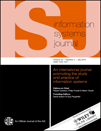
INFORMATION SYSTEMS JOURNAL
Scope & Guideline
Elevating Standards in Information Systems Scholarship
Introduction
Aims and Scopes
- Digital Transformation and Innovation:
Research in this area explores how organizations leverage information systems to undergo digital transformation, focusing on frameworks, strategies, and empirical studies that highlight best practices and challenges. - Social Impact of Information Systems:
This scope examines the societal implications of information systems, including issues of equity, access, and social innovation, particularly in developing contexts and marginalized communities. - Methodological Advancements in Information Systems Research:
The journal encourages innovative methodological approaches, including qualitative and quantitative methods, case studies, and comparative analyses that enhance the rigor and relevance of IS research. - Governance and Ethics in Information Systems:
This focus area addresses the governance challenges posed by digital platforms and technologies, emphasizing ethical considerations, privacy concerns, and the implications of algorithmic decision-making. - Sustainability and Information Systems:
Research related to sustainability examines how information systems can contribute to sustainable practices in various sectors, including energy, public health, and environmental management. - Digital Platforms and Ecosystems:
This area investigates the dynamics of digital platforms, their governance structures, and the role they play in facilitating interactions among various stakeholders within ecosystems.
Trending and Emerging
- Decolonization in Information Systems:
There is a growing emphasis on decolonizing research practices and frameworks, reflecting a broader movement to include diverse perspectives and address historical inequities in the field. - Digital Resilience and Crisis Management:
Research focusing on how organizations can build resilience through digital tools and practices, particularly in response to crises like the COVID-19 pandemic, has gained significant traction. - Algorithmic Governance and Fairness:
Emerging studies are increasingly examining the implications of algorithms in governance, including fairness, transparency, and accountability, as organizations grapple with the impact of AI and machine learning. - Integration of Sustainability into Digital Practices:
There is a notable trend towards integrating sustainability principles into digital business models, highlighting the role of information systems in fostering environmental responsibility. - Hybrid Work Models and Digital Transformation:
With the rise of remote and hybrid work arrangements, research is increasingly focused on the impact of these models on organizational practices, employee engagement, and productivity. - Social Media and Political Polarization:
The intersection of social media dynamics and political polarization is becoming a critical area of study, reflecting concerns about misinformation, public discourse, and societal division.
Declining or Waning
- Traditional Information Systems Theory:
There has been a noticeable decline in research centered solely on traditional IS theories, with a shift towards more integrated and interdisciplinary approaches that consider broader socio-technical contexts. - Rigid Methodological Approaches:
The journal has seen a decrease in submissions that adhere strictly to traditional quantitative methodologies without incorporating qualitative insights, as researchers increasingly value mixed-methods and innovative frameworks. - Focus on Localized Studies:
While localized studies were once prevalent, there is a waning emphasis on context-specific research without broader implications, as scholars aim for findings that can be generalized across different settings. - Narrow Technological Focus:
Research that solely emphasizes specific technologies without examining their broader implications or interconnections with social, organizational, or ethical dimensions has become less frequent. - Conventional User Experience Design:
The focus on basic user experience design principles has decreased, as the discourse has shifted towards more complex interactions involving algorithms, AI, and user engagement in digital ecosystems.
Similar Journals

Electronic Journal of Information Systems in Developing Countries
Advancing Information Systems in Emerging EconomiesElectronic Journal of Information Systems in Developing Countries (ISSN: 1681-4835, E-ISSN: 1681-4835) is a pivotal resource for researchers and practitioners in the fields of Information Systems and E-learning, published by the reputable WILEY. Established in 2000 and continuing through 2024, this journal aims to bridge the gap between theory and practice in the context of developing nations, addressing critical issues related to technology adoption, education, and information systems implementation. Despite its Q3 ranking in both E-learning and Information Systems categories, it offers a platform for innovative research that contributes to the advancement of knowledge and practices in these areas. The journal is accessible to a diverse audience including professionals, researchers, and students, enabling them to stay abreast of the latest developments and trends. The Electronic Journal of Information Systems in Developing Countries is not only a key player within its niche but also a vital contributor to global discourse on the role of information systems in fostering sustainable development.
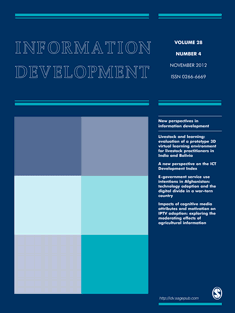
Information Development
Championing Progress in Library and Information DevelopmentInformation Development, published by SAGE Publications Ltd, is a prestigious journal focusing on the dynamic intersection of library science and information development. With an ISSN of 0266-6669 and an E-ISSN of 1741-6469, this journal has established itself as a critical resource for researchers, professionals, and scholars in the field since its inception in 1985. With a 2023 Q2 ranking in Library and Information Sciences and a commendable Scopus rank, falling within the 82nd percentile among its peers, the journal provides an invaluable platform for the dissemination of cutting-edge research and innovative practices. Notably positioned in the United Kingdom, the journal offers insightful explorations of contemporary challenges and advancements in information access, management, and policy. Although currently not an Open Access journal, it continues to contribute significantly to its field by fostering a robust academic dialogue and sharing knowledge essential for the evolution of library and information sciences. Scholars and practitioners alike are encouraged to engage with Information Development as it remains instrumental in navigating the complexities of today's information landscape.
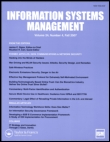
INFORMATION SYSTEMS MANAGEMENT
Exploring Innovations in Computer Science ApplicationsINFORMATION SYSTEMS MANAGEMENT is a premier academic journal published by Taylor & Francis Inc, focusing on the ever-evolving fields of Information Systems, Computer Science Applications, and Library and Information Sciences. With an impressive track record spanning over three decades since its inception in 1992, this journal is recognized in the top quartile (Q1) of its categories as of 2023, reflecting its influence and contribution to the research community. The journal holds commendable rankings in Scopus, positioned at #6 out of 280 in Library and Information Sciences, #44 out of 817 in Computer Science Applications, and #23 out of 394 in Information Systems, all showcasing its esteemed standing among peers. While the journal is not open access, it remains a vital resource for researchers, professionals, and students seeking to enhance their understanding of information systems management through high-quality, peer-reviewed articles that illuminate current trends, innovative technologies, and theoretical advancements in the field. With its dedicated commitment to scholarly excellence, INFORMATION SYSTEMS MANAGEMENT continues to be a leading platform for fostering knowledge dissemination and promoting academic dialogue.

Ibersid-Revista de Sistemas de Informacion y Documentacion
Innovating Research in Information SciencesIbersid-Revista de Sistemas de Informacion y Documentacion is an esteemed academic journal published by IBERSID NETWORK, focusing on pivotal themes in the fields of communication, computer networks, information systems, and library and information sciences. With an ISSN of 1888-0967 and an E-ISSN of 2174-081X, this Spanish journal has been a significant contributor to scholarly discourse since its inception in 2012. Recognized in the 2023 category quartiles, it holds a Q3 ranking in communication and library and information sciences, while ranking Q4 in computer networks and communications as well as information systems, reflecting its unique intersectionality within these domains. Despite its emerging status, evidenced by its Scopus ranks demonstrating a mixed percentile across various categories, the journal is committed to advancing knowledge and fostering innovative research. Researchers, professionals, and students are encouraged to contribute to this open-access platform, further enhancing the impact and reach of vital information and documentation systems.
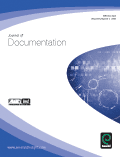
JOURNAL OF DOCUMENTATION
Elevating Academic Discourse in Information and Documentation.JOURNAL OF DOCUMENTATION is a premier academic journal published by Emerald Group Publishing Ltd, dedicated to advancing knowledge in the fields of Information Systems and Library and Information Sciences. With an enduring legacy since its inception in 1945, this journal has established itself as a pivotal resource for researchers, professionals, and students alike, providing cutting-edge insights and comprehensive research findings relevant to the ever-evolving landscape of information management. The journal boasts a commendable impact factor and has been ranked in the Q2 category for Information Systems and Q1 for Library and Information Sciences as of 2023, reflecting its significant contribution to these fields. It is indexed in Scopus, with notable rankings in the Social Sciences and Computer Science categories, ensuring visibility and accessibility for the academic community. While the journal currently does not offer open access, it remains committed to disseminating high-quality research that informs practice and stimulates scholarly discussion locally and globally, making it a valuable asset for anyone invested in the study of documentation and information processes.

African Journal of Information Systems
Catalyzing Collaboration for Sustainable Solutions.African Journal of Information Systems, published by Kennesaw State University, is a premier open-access journal since 2008, dedicated to advancing the field of information systems across the African continent and beyond. With its ISSN of 1936-0282, the journal serves as a vital platform for researchers, professionals, and students to share innovative ideas, research findings, and case studies that address the unique challenges and opportunities within African contexts. The journal aims to foster scholarly communication and collaboration, enhancing knowledge-sharing across disciplines while supporting the development of sustainable information systems solutions tailored to the African landscape. By providing free access to its content, the African Journal of Information Systems ensures that valuable insights and knowledge are disseminated widely, promoting a thriving academic and professional community committed to excellence in information systems research.
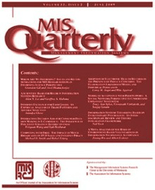
MIS QUARTERLY
Driving Critical Discourse in Management Information SystemsMIS Quarterly, an esteemed journal published by the SOC Inform Manage-MIS Res Cent, is a premier academic outlet in the fields of Computer Science Applications, Information Systems, and Management Information Systems. Established in 1980, this journal has consistently maintained its status in the top quartile (Q1) of leading academic categories, with a remarkable impact reflected in its rankings—such as #54 out of 817 in Computer Science Applications and #11 out of 131 in Management Information Systems. With a comprehensive scope that aims to advance the understanding of information technology's role within organizations, MIS Quarterly serves as a vital resource for researchers, practitioners, and educators. The journal invites contributions that explore innovative research, theoretical developments, and empirical studies that push the boundaries of the field. Despite having no open access option, its influential publications play a crucial role in shaping future research and professional practices in management information systems. For those seeking to stay at the forefront of this dynamic field, MIS Quarterly is an indispensable scholarly resource.
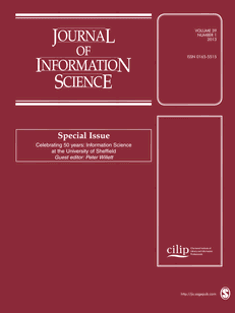
JOURNAL OF INFORMATION SCIENCE
Empowering researchers with high-quality, peer-reviewed scholarship.JOURNAL OF INFORMATION SCIENCE (ISSN: 0165-5515; E-ISSN: 1741-6485), published by SAGE PUBLICATIONS LTD, stands as a leading academic journal in the realms of Information Systems and Library and Information Sciences. Established in 1979 and continuing through 2024, this journal has become a cornerstone for researchers, professionals, and students seeking to enhance their understanding of the rapidly evolving landscape of information management. With a commendable Q1 ranking in Library and Information Sciences and a Q2 ranking in Information Systems as of 2023, it demonstrates significant influence, evidenced by its 89th percentile ranking in Scopus for Social Sciences. Although it currently does not offer open access, the journal is committed to delivering high-quality, peer-reviewed research that addresses both theoretical and practical challenges in the field. Researchers and practitioners alike will find invaluable insights that bolster their work and contribute to the broader academic dialogue surrounding information science.
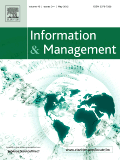
INFORMATION & MANAGEMENT
Advancing Knowledge for Effective Information SystemsINFORMATION & MANAGEMENT, published by Elsevier, stands as a premier journal in the realm of Information Systems and Management Information Systems. With an impressive focus on advancing the understanding and application of information technology to enhance organizational effectiveness, this journal has garnered a distinguished Q1 ranking across various categories in 2023, including Information Systems and Management. The journal's rigorous peer-reviewed platform ensures that cutting-edge research influences practitioners and academics alike. As a testament to its relevance, INFORMATION & MANAGEMENT holds a notable position in Scopus rankings, sitting in the top 5% of journals within its field. Covering a wide scope from foundational theories to innovative applications, it invites contributions that explore the practical implications of information and management technologies, thus making it an essential resource for researchers, professionals, and students dedicated to the evolving landscape of information management.
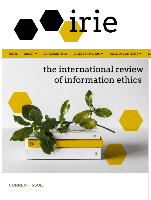
International Review of Information Ethics
Cultivating Perspectives on the Ethics of Information DisseminationThe International Review of Information Ethics, with the ISSN 1614-1687, is a critical platform dedicated to the exploration and discourse surrounding the ethical dimensions of information in the digital age. Published by the International Center for Information Ethics, this journal seeks to address the challenges and opportunities presented by technological advancements in information dissemination, data privacy, and digital citizenship. While the journal operates on an open-access model, it ensures the dissemination of high-quality research that serves as a valuable resource for researchers, academics, professionals, and students alike. Situated in Karlsruhe, Germany, the editorial team, led by Editor-in-Chief Rafael Capurro, invites contributions that engage with contemporary ethical issues, fostering a global dialogue that is vital for the ethical stewardship of information technology. By promoting rigorous scholarship and diverse perspectives, the International Review of Information Ethics aims to influence policy and practice in the ever-evolving landscape of information ethics.